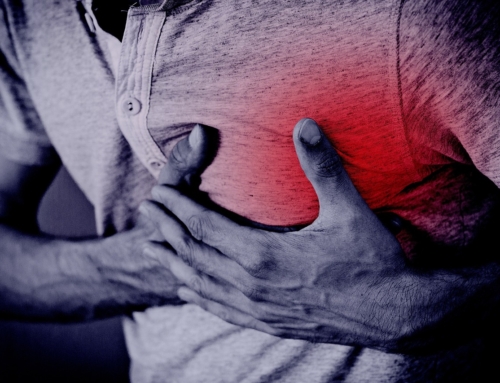Post-Covid health issues are starting to make the news and one in particular is raising the eyebrows of men. A recent study conducted at Northwestern University Feinburg School of Medicine in Chicago was looking at the location of the coronavirus in monkeys. They knew it would be found in the lungs but they were surprised when the penis, testicles, prostate and surrounding blood vessels demonstrated a high viral load. This may shed some light on the fact that 10-20% of men are experiencing some erectile dysfunction or urogenital symptoms after getting COVID. Let’s put this another way, if you have had COVID you may be 6x more likely to have ED. READ ON to learn more about why they think this is happening and some possible ways to address this….
If we get geeky here (and you know I have been pretty geeky regarding COVID), the male urogenital tract has an abundance of ACE2 receptors. If you recall very early on when I wrote about COVID in general I was talking about how the virus has an affinity for the ACE2 receptors (and if you recall this you get extra, extra bonus points). It makes sense that with a high quantity of these receptors there will be an attraction for this virus. But now what? We know the virus binds to these receptors and the end result might just be erectile dysfunction but how is that happening? Turns out there are several different theories on what is occurring (which usually means it’s a combination of all of them).
1. Cell damage: the virus has been shown to cause damage to the lining of the vessels called the endothelium. Damage to the endothelial cells is thought to cause a myriad of vessel related issues including cardiac injury and now add urogenital injury to the list.
2. Low testosterone:
a. We know that low testosterone can actually predispose a man to higher amounts of systemic inflammation so when this virus binds there is more of an inflammatory response in any tissue.
b. The damage to the testicles by the virus itself can in turn lead to low testosterone which can contribute to ED.
3. Decreased blood flow: many men with COVID have had events that have lead to decreased blood flow systemically. Since the vessels in the urogenital area are small they tend to be seriously affected. Cardiac events and medications given to keep blood pressure regulated during critical care stages all contribute to perhaps long-lasting effects.
4. Neurogenic effects: Covid creating neurologic effects is quite common with manifestations in the central and peripheral nervous system. In severely affected patients, strokes, ataxia and other disorders are occurring. Neurological effects can occur via direct infection injury to the nerves, hypoxia injury (low oxygen – see blood flow above), immune injury as well as the ACE2 receptor pathway activation. Neurogenic cases account for 10-19% of causes of ED in general and tend to be more refractory to therapy.
5. Psychological effects: the tole COVID has taken emotionally is a HUGE factor and cannot be stressed enough as a cause of ED. The everyday stressors have been amplified with changes in job & home situations as well as family dynamics. Don’t hesitate to reach out to a professional to help you through this situation because you are NOT alone.
ED in post COVID patients is such a rising concern that a group, Urologists United for Vaccine Education even put together in informational video, “Save the Future Boners” to urge men to get vaccinated.
Once you have had COVID and are having issues here is how I would approach it:
- 1. Get your blood pressure in optimal range
- 2. If you are overweight, then really commit to getting that extra weight off
- 3. Get your blood sugars in optimal range
- 4. Exercise – it boosts testosterone levels and blood flow
- 5. Check blood work and optimize anything out of range: look at the following:
- a. hormone levels (testosterone, estrogen, thyroid). **a word of caution: high levels of testosterone can backfire post-COVID and cause more of a clotting risk so if you are on T replacement be sure you are not in a range that is causing increased production of red blood cells.
- b. inflammation levels
- c. blood sugar
- d. plus the basics like blood counts, kidney and liver function
- 6. Supplements that may help obviously depends on if you have medical conditions like diabetes, high blood pressure and what the blood work showed. In general though, we know that COVID creates an inflammatory state so targeting this is usually a good idea.
- a. Fish oil – an anti-inflammatory and thins the blood
- b. Curcumin- an anti-inflammatory and thins the blood
- c. Diovasc – helps with small blood vessel disease
- d. Arginine – may help optimize blood flow (caution using this if you have blood pressure issues)
The sooner you can address this issue the better so don’t wait and think it will just get better. At the very least, start some anti-inflammatories!
To your health,
Laura









